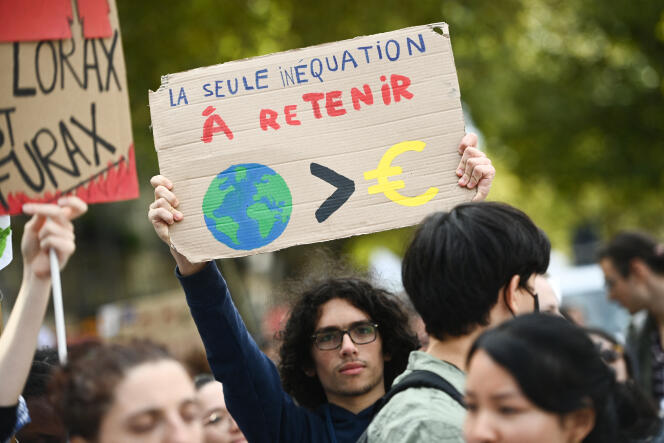


They are said to be lazy, disenchanted and depressed. The lifestyles of young people aged 18 to 30 are the subject of fantasies, and sometimes stereotypes. Their attitudes toward work are at the heart of a new Harris Interactive survey commissioned by the youth collective Pour un réveil écologique (For an environmental awakening) – created in 2018, following the eponymous manifesto – and carried out in June 2023 among a representative sample of 2,000 young French people.
The survey, previewed by Le Monde, shows that young people are not disconnected from the rest of the French society, and that they have the same priorities as others: "Purchasing power, their salaries, and the environment," summarized Pierre-Hadrien Bartoli, Director of Political Studies at Harris Interactive. For the members of the collective, the aim was to show that "all" young people – and not just the "jeunesse dorée" ("gilded youth", or graduates of top universities from wealthy families) – are concerned by ethical issues as well as by their own social value and want to work in a job that respects the environment.
The essay by economists Thomas Coutrot and Coralie Perez, Redonner du sens au travail ("Restoring Meaning to Work"), validated this hypothesis, pointing out that both blue-collar workers and managers can suffer from "feelings of uselessness and ethical conflicts," and that all social categories aspire to derive meaning from their work.
When asked about their "state of mind," people under 30 showed a high degree of optimism. Many said they were "determined" (36%), "happy" (33%), "optimistic" (29%) and "enthusiastic" (24%). In fact, 90% said they were "proud" of their work, and for 85% of respondents, work occupied an "important place" for them (compared to 79% for the working population as a whole). Another question revealed a particular attitude to work: If they didn't need to earn money, 77% of young people would still continue to work (49% would stay in the same job, 28% would change jobs and only 22% would stop working).
Bartoli was not surprised by these results. Survey after survey, he finds the same recurring trends among young people. He also noted a strong sense of worry for 20% of young people: "An undercurrent of emotion bordering on anxiety." Among the issues of greatest concern to this segment of the population: The breakdown of natural resources (80%), climate disruption (79%), the future of younger generations (78%) and, just behind those, purchasing power (77%).
You have 56.17% of this article left to read. The rest is for subscribers only.
